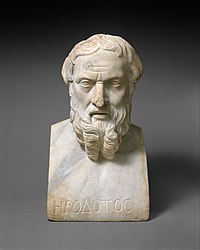History/Geography/Science
History from the entire world and across them.Definition of 'History'
History (from Greek ἱστορία, historia, meaning "inquiry; knowledge acquired by investigation") is the study of the past. Events occurring before the invention of writing systems are considered prehistory. "History" is an umbrella term that relates to past events as well as the memory, discovery, collection, organization, presentation, and interpretation of information about these events. Historians place the past in context using historical sources such as written documents, oral accounts, ecological markers, and material objects including art and artifacts.
History also includes the academic discipline which uses narrative to describe, examine, question, and analyze a sequence of past events, and investigate the patterns of cause and effect that are related to them. Historians seek to understand and represent the past through narratives. They often debate which narrative best explains an event, as well as the significance of different causes and effects. Historians also debate the nature of history and its usefulness by discussing the study of the discipline as an end in itself and as a way of providing "perspective" on the problems of the present.
Stories common to a particular culture, but not supported by external sources (such as the tales surrounding King Arthur), are usually classified as cultural heritage or legends. History differs from myth in that it is supported by evidence. However, ancient influences have helped spawn variant interpretations of the nature of history which have evolved over the centuries and continue to change today. The modern study of history is wide-ranging, and includes the study of specific regions and the study of certain topical or thematic elements of historical investigation. History is often taught as part of primary and secondary education, and the academic study of history is a major discipline in university studies.
Herodotus, a 5th-century BC Greek historian is often considered (within the Western tradition) to be the "father of history", or, the "father of lies". Along with his contemporary Thucydides, he helped form the foundations for the modern study of human history. Their works continue to be read today, and the gap between the culture-focused Herodotus and the military-focused Thucydides remains a point of contention or approach in modern historical writing. In East Asia, a state chronicle, the Spring and Autumn Annals, was known to be compiled from as early as 722 BC although only 2nd-century BC texts have survived.
⭐ FEATURED - Sculpture of the Year

Herodotus (c. 484 BC – c. 425 BC) is often considered the "father of history"
⭐ FEATURED - Article throughout Tokipedia
Titanic was under the command of Captain Edward Smith, who also went down with the ship. The ocean liner carried some of the wealthiest people in the world, as well as hundreds of emigrants from Great Britain and Ireland, Scandinavia and elsewhere throughout Europe, who were seeking a new life in the United States. The first-class accommodation was designed to be the pinnacle of comfort and luxury, with a gymnasium, swimming pool, libraries, high-class restaurants, and opulent cabins. A high-powered radiotelegraph transmitter was available for sending passenger "marconigrams" and for the ship's operational use.[7] The Titanic had advanced safety features, such as watertight compartments and remotely activated watertight doors. The ship carried 16 lifeboat davits which could lower three lifeboats each, for a total of 48 boats. However, Titanic carried only a total of 20 lifeboats, four of which were collapsible and proved hard to launch during the sinking.[8] The carried lifeboats were enough for 1,178 people—about half the number on board, and one third of her total capacity—due to the maritime safety regulations of those days. Though at the time of the sinking the lowered lifeboats were only about half-filled.
Most Common Searched Articles
- Battle of Thermopylae
- Ancient China : Ancient China was one of the oldest and longest lasting civilizations in the history of the world. The history of Ancient China can be traced back over 4,000 years. Located on the eastern part of the continent of Asia, today China is the most populous country in the world.
- The Siege of Godesberg : The Siege of Godesberg, 18 November – 17 December 1583, was the first major siege of the Cologne War (1583–1589).
- Sinking of the Titanic : RMS Titanic was a British passenger liner operated by the White Star Line that sank in the North Atlantic Ocean on 15 April 1912, after striking an iceberg during her maiden voyage from Southampton to New York City.
- Cavemen and Dinosaurs : The Cavemen and Dinosaurs era was in the years of BC and AD for the undeveloped human naturals.
- Greek Gods and Goddesses : From the Olympian gods and goddesses right down to the many minor gods and goddesses found in Greek literature, you'll find quick and fun information on many gods and goddesses.